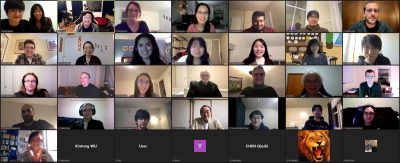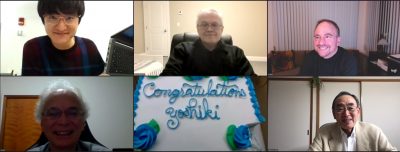The article “Acquisition of English adjectival resultatives: Support for the Compounding Parameter” by Shuyan Wang, Yasuhito Kido (visiting scholar 2017-2018), and William Snyder has just appeared as an online first article ahead of its print publication in Language Acquisition. Congratulations!
Abstract: Two distinctive types of complex predicates found in English are separable verb-particle combinations (“particles”) and adjectival resultatives (“ARs”). Snyder ties both to the positive setting of the Compounding Parameter (“TCP”). This predicts that during the acquisition of a [+TCP] language, any child who has acquired ARs or particles will also permit “creative” bare-stem, endocentric compounding. Existing support comes from children acquiring Japanese and English. Yet the same evidence introduces two new puzzles: (i) why is compounding acquired roughly a year earlier in English than in Japanese?; and (ii) in English, why is compounding always acquired at the same time as (and never substantially prior to) particles? Here, we argue that both puzzles can be explained if we allow the trigger for a single parameter-setting (e.g., [+TCP]) to be completely different for children acquiring different languages. Specifically, the trigger for [+TCP] (and hence, ARs) in English is proposed to be particles, which are unavailable in Japanese. Two novel predictions are tested and supported: (i) the frequency will be higher for particles than for any (other) potential trigger in child-directed English or Japanese; and (ii) children acquiring English (unlike Japanese) will have reliably adult-like comprehension of ARs by the age of 3 years.

